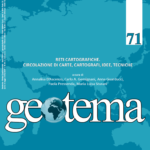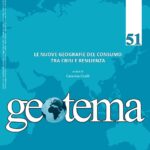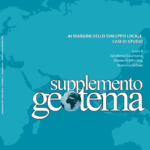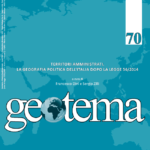Gianfranco Battisti
La questione energetica nel terzo millennio
Il panorama dell’energia appare oggi sconvolto da tendenze contrastanti. Le fonti rinnovabili, divenute competitive sia nelle reti di distribuzione sia nei trasporti, stanno entrando nella vita di ogni giorno. L’auto elettrica è diventata una realtà e la transizione sta arrivando perfino sugli aerei. Di fronte al cambiamento, la risposta politica è variegata. La UE sta imboccando con decisione la linea verde, ma negli altri continenti per un complesso di motivi le fonti fossili sono ancora vincenti: negli USA di Trump, ma anche nel Giappone post-nucleare e soprattutto in Cina. Quest’ultima e la Russia puntano ancora sul nucleare, che propongono pure ai loro partner commerciali. A livello mondiale è in corso una profonda modifica degli equilibri geopolitici. Dopo mezzo secolo gli USA stanno ritornando con forza sui mercati dell’energia, soprattutto in Europa, dalla quale vengono progressivamente scalzati i fornitori tradizionali. Le conseguenze, non più confinate al Golfo Persico, toccano l’intero Medio Oriente. L’instabilità politica coinvolge ormai tutto il bacino mediterraneo, compromettendo lo sfruttamento del gas offshore, largamente presente. Con i flussi commerciali mutano i rapporti tra petrolio e dollaro. Le prevedibili ricadute sui mercati valutari si sommano alla caduta dei profitti e all’ascesa delle rinnovabili, che minacciano un divorzio tra la finanza e il mondo dei petrolieri.
The Energy Issue in the Third Millenium
Today, the energy landscape is shaken by contrasting trends. Renewable sources, which have become competitive both in distribution networks and in transport, are entering everyday life. The electric car has become a reality and the transition is now affecting even the airplanes. In the face of change, the political response is diverse. The EU is firmly taking the green line, but in other continents for a complex of reasons fossil sources are still winning: in Trump’s USA, but also in post-nuclear Japan and especially in China. China and Russia still rely on nuclear power, which they also propose to their trading partners. The world is undergoing a profound change in geopolitical balances. After half a century, the USA is returning strongly to the energy markets, especially in Europe, from which traditional suppliers are gradually being excluded. The consequences, no longer confined to the Persian Gulf, affect the whole of the Middle East. Political instability now affects the entire Mediterranean basin, compromising the exploitation of offshore gas, there widely present. As trade flows change the relationship between oil and the US dollar weakens. Foreforeseeable spillover effects on markets add up to falling profits and the rise of renewables that threaten a divorce between finance and the oil industry.
Energiefrage im Dritten Jahrtausend
Heute wird die Energielandschaft von gegensätzlichen Trends erschüttert. Erneuerbare Energiequellen, die sowohl in den Vertriebsnetzen als auch im Verkehrswesen wettbewerbsfähig geworden sind, treten in den Alltag ein. Die politischen Antworten auf den Wandel sind vielfältig. Die EU geht entschieden in die grüne Richtung, aber in anderen Kontinenten gewinnen fossile Quellen aus komplexen Gründen immer noch: in Trumps USA, aber auch im Japan nach dem Atomausstieg und insbesondere in China. China und Russland sind immer noch auf die Kernenergie angewiesen, die sie auch ihren Handelspartnern vorschlagen. Die Welt befindet sich in einem tiefgreifenden Wandel geopolitischer Gleichgewichte. Nach einem halben Jahrhundert kehren die USA stark auf die Energiemärkte zurück, insbesondere in Europa, von denen traditionelle Anbieter allmählich untergraben werden. Die Folgen, die nicht länger auf den Persischen Golf beschränkt sind, betreffen den gesamten Nahen Osten. Zur selben Zeit verändern Handelsströme die Beziehung zwischen Öl und dem US-Dollar. Vorhersehbare Ausstrahlungseffekte auf die Märkte führen zu sinkenden Gewinnen und dem Anstieg erneuerbarer Energien, die eine Trennung zwischen Finanzwirtschaft und Ölindustrie verursachen könnte.
Parole chiave: fonti di energia, geopolitica, transizione energetica
Keywords: energy sources, geopolitics, energy transition
Schluesserwoerter: Energiequellen, Geopolitik, Energiewechsel









